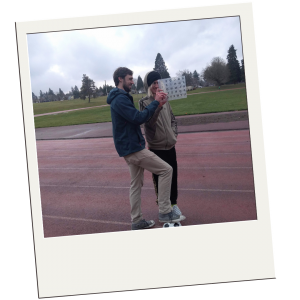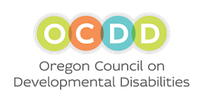 It’s time to address a topic I live with every day, and greatly impacts my pursuit of independence: ableism. It basically means when people use their own perspective to design, define, and evaluate the value placed on people with disabilities: what we say and experience, how we are treated, and the ways we live, work, and love in the world. It is usually unconscious and so ingrained in the psyches of even the most ardent self-advocate that most of us accept that we will have to struggle against it for the rest of our lives. That makes this topic even more important to us.
It’s time to address a topic I live with every day, and greatly impacts my pursuit of independence: ableism. It basically means when people use their own perspective to design, define, and evaluate the value placed on people with disabilities: what we say and experience, how we are treated, and the ways we live, work, and love in the world. It is usually unconscious and so ingrained in the psyches of even the most ardent self-advocate that most of us accept that we will have to struggle against it for the rest of our lives. That makes this topic even more important to us.
Let me start with an example. I had a class in high school that used to require students get practice at public speaking. For someone like me, this is impossible, so they had to adjust that requirement for me. Maybe if the Oregon Department of Education didn’t assume that all its students were verbal, it wouldn’t have been an issue. Or perhaps the people writing the learning goals assumed that anyone who can’t speak wouldn’t be in a general education class anyways? After all, I know how unusual it is for a person like me to be in a regular classroom with non-disabled peers. The thing is, I wasn’t the only student who had a disability or had trouble speaking, but it was as if I was the only person needing an accommodation in this area. Sometimes I would get frustrated by all the ways I had to meet their defined standard of success when I was considered “less-than” in so many ways.
 Another way ableism has impacted my life is through work. I think everyone needs to reconsider job performance reviews and what they’re based on: a definition of completing a set of tasks to the ideal of how someone would best, i.e., most able-bodied, fulfill the requirements of the position. This is essentially saying that if you are disabled, you need to be able to meet these criteria, or you will come up short. This is a reality for so many of us, and points to an obvious truth: we aren’t the majority, and therefore, our experiences are second-rated. It’s this ableism that has people convinced that sheltered workshops are the only option for their family member. It’s surely the biggest con job done on people who’ve never been given the chance to try.
Another way ableism has impacted my life is through work. I think everyone needs to reconsider job performance reviews and what they’re based on: a definition of completing a set of tasks to the ideal of how someone would best, i.e., most able-bodied, fulfill the requirements of the position. This is essentially saying that if you are disabled, you need to be able to meet these criteria, or you will come up short. This is a reality for so many of us, and points to an obvious truth: we aren’t the majority, and therefore, our experiences are second-rated. It’s this ableism that has people convinced that sheltered workshops are the only option for their family member. It’s surely the biggest con job done on people who’ve never been given the chance to try.
I want to be clear that I am not pointing a finger at parents or caregivers who’ve made the choice to put their child in this situation, as they are no doubt trying to do the best they can. I think this is a root problem for our society in that the way we’ve treated people with disabilities has been segregatory in nature: in school, play, work, and housing, it has been the norm to keep people with disabilities separate and definitely not equal.
 That reality is cemented in place by ableism and prejudice, and will take a generation or two to undo. Now is the time to mobilize people into discussions about ableism and its real harm in keeping people with disabilities in a perpetual state of disadvantage. The most important area of change needs to be in the way parents view their children and what they are able to achieve in life. If you settle for what others tell you your child will achieve, there will undoubtedly be lazy opinions, half-hearted attempts to include your young person in activities with others, and professionals who are led by budgets rather than what’s best for your loved one. Parents have to be the ones who step up to drive changes that make it possible for people with disabilities to take over the important decisions that affect our lives. We seem to be moving in that direction, but damn it if ableism isn’t making it difficult to reach.
That reality is cemented in place by ableism and prejudice, and will take a generation or two to undo. Now is the time to mobilize people into discussions about ableism and its real harm in keeping people with disabilities in a perpetual state of disadvantage. The most important area of change needs to be in the way parents view their children and what they are able to achieve in life. If you settle for what others tell you your child will achieve, there will undoubtedly be lazy opinions, half-hearted attempts to include your young person in activities with others, and professionals who are led by budgets rather than what’s best for your loved one. Parents have to be the ones who step up to drive changes that make it possible for people with disabilities to take over the important decisions that affect our lives. We seem to be moving in that direction, but damn it if ableism isn’t making it difficult to reach.
